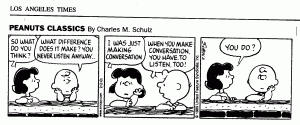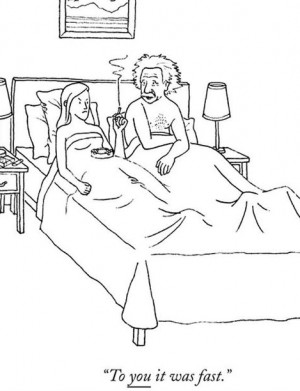 According to Malcolm Gladwell: life skills, social skills, winning skills you learn through living with people who use them.
According to Malcolm Gladwell: life skills, social skills, winning skills you learn through living with people who use them.
My mother didn’t have them, and my brothers, especially my younger brother didn’t get them…
I did get some from my father: my father came from deep… his mother died of starvation, he was bounced between families, autodidact: getting an education without going to school, walking from one country to the other to save his skin…
I didn’t see any of that. What I saw was him spending almost all his time writing or reading, and advancing himself.
Others, the rest of the family, could watch senseless TV… he wasn’t pulled by that: he knew what he wanted, and it seems that he knew that TV won’t get him there.
If you ever wondered how come I could pull myself away from family and society’s pleasures: I saw it done, and I knew it can be done. I never saw that my father suffered any ill effects from it. 1
But social skills… social capacities, the capacities for winning… I am still a work in progress… and the progress is really slow. But steady.
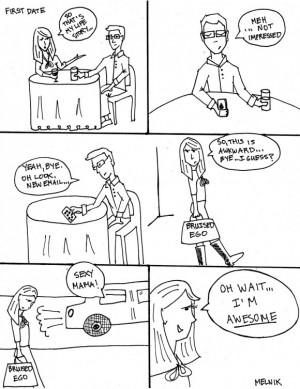 One capacity, a capacity that cannot be taught, it can only be opened, is what I call bilocation.
One capacity, a capacity that cannot be taught, it can only be opened, is what I call bilocation.
It’s the most valuable capacity I have.
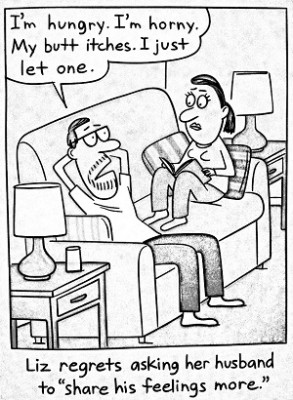 It began to open up as a result of the five questions you need to ask of friends, family, associates, to get how you show up for others.
It began to open up as a result of the five questions you need to ask of friends, family, associates, to get how you show up for others.
I have written about that, and a few of my students actually did ask a few people…
But let me talk about my experience here, the experience that started to wiggle the switch that turns on the capacity.
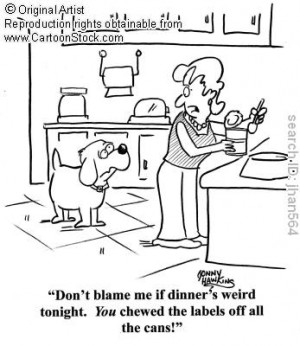 My associates talked about my disrespect, my disregard for them, their feelings, their contribution, their talent.
My associates talked about my disrespect, my disregard for them, their feelings, their contribution, their talent.
It was jarring to hear that, because, looking from behind my eye balls… I wasn’t anything like that.
The conundrum was: were they right, or was I right? And without introducing something unimaginable: that maybe we were both right emerged as a possibility.
Until that point, the world existed as polar opposites, either this or that, either want or need, either good or bad…
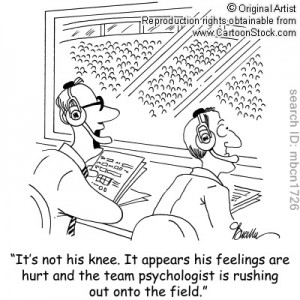 And from this total nonsensical idea, that maybe both sides of the coin can be true, came this capacity, bilocation.
And from this total nonsensical idea, that maybe both sides of the coin can be true, came this capacity, bilocation.
Every capacity is rich, multi-layered, but we are talking about this one: and this is the capacity that allows me to validate another’s feelings, opinions, that are dramatically different from yours. This is also the capacity that allows me to have compassion for you, even though I may think that what makes you suffer is your fault, or that you are a knuckle head. And yet… What is in your shoes and what is in my shoes can be different, and both can be valid.
As an empath I felt that gap, often, and I called in ambivalence.
I took Valium so I don’t have to see it. I did years of psychoanalysis to get rid of it.
Unconscious ambivalence is horrible… Ambivalence who lives in the world of either/or is intolerable. Confusing. Uncomfortable.
We, humans, want life to be crystal clear, but life is life, and everyone has different interests, different priorities, different feelings… and unless you learn to appreciate it, actively, not just as an idea, misery is never far from your thoughts.
Almost all conflict between people comes from this capacity missing.
We think we know people, but we only know what we think about them… and until we have a glimpse of how it is for them, in their own skin… we are aliens, or trains passing each other on different rails… never to actually meet.
Living, entirely and full time in your own world, cut away from others, is nasty… many of you are here because you are disconnected, alienated… and lonely.
Painfully lonely.
Yearning for a soul mate, yearning for someone who gets you… hell on earth.
What you are not getting is YOU lack a capacity. Whether another will EVER know what you feel, as long as you can be with them, in their shoes: your experience is “we are together”.
The slogans: we are all one, are useless for most people… without the capacity of bilocation, it is just that: a slogan that is a lie, for you.
Appreciation also depends on this capacity: if you cannot know what the other’s world is like, as an experience, you can’t appreciate their world… can you?
If I asked you: what is it like for others to be with you, to be around you? You would make up stuff… that is far from how it is.
Because you don’t know.
Bilocation, the capacity and the practice, almost makes you an empath… It probably activates the region of the brain where empathy lives.
And the moment you see, feel, appreciate the other person’s point of view, you can talk to them, effectively, you can bring them over to another view, or join them in theirs.
We call this alignment. It is magical.
If you want me to turn on this capacity for you, you need to do some work beforehand… or I won’t do it.
1. You have to, desperately, need it. If you don’t, then you won’t have opportunities to use it, and it will turn off from unuse.
2. I recommend that you do the five questions exercise with at least three people, to get present to the gap you think of yourself, and they think of you.
It will clearly show you the need to either look at yourself differently, or change yourself…
The exercise is here: The Five Questions
If you are my student, let me know what you are finding out? If you aren’t… oh well…

